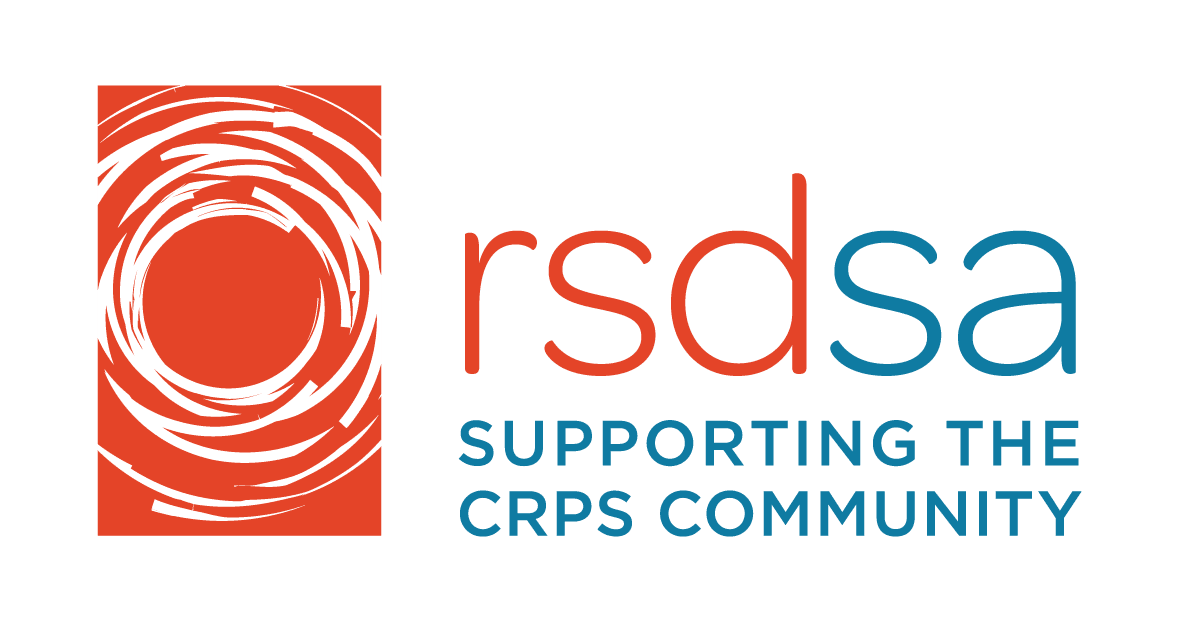Written by Kellie Slater for the RSDSA blog.
How and when did you develop CRPS/RSD?
My original injury happened in August of 2012. Even though I saw providers on a regular basis and continued to have excruciating pain, and some of these providers thought it could be CRPS, I was not formally diagnosed until later. I underwent physical therapy, which only exacerbated my pain. I had ice applied and instruments that applied a high amount of pressure to my nerves and all the while, the therapists could not understand why my pain did not abate. In fact, they were visibly annoyed that I was not getting better. This added insult to injury. I feel like this lack of knowledge and not listening to the patient contributed to the chain of events that lead me to where I am now – in constant pain and the associated other medical issues that come along with CRPS.
What has daily life been like since your diagnosis?
It is a struggle to try and stay positive. Though I have always been highly independent and active previously, including having a highly demanding, highly physical, long term career as a flight attendant, I now have to rely on the help of others, which is not that easy to find either. Though I have always been social and able to do typical things that friends do together, I now am unable to walk my dogs and participate in typical physical activities that others want to do. When people discover you use a cane to walk, you have memory problems, cannot concentrate, etc., and that you simply cannot do things a person of your age normally does, it creates a barrier.
What is one thing you wish those without CRPS/RSD could understand?
That just because you cannot see my disease and I am not crying in front of you, it does not mean that I am not suffering and in constant pain. There are plenty of times where I do cry out of frustration and pain, but I do it privately. I wish people would realize that I am definitely giving things my best effort, and I wish I could be able to do the things I used to do.
It would be great for people to know how important it is to maintain contact with those who have CRPS, and really any other disease, as a lack of communication can lead to people being isolated.
What advice would you give to newly diagnosed Warriors?
Do a lot of research on your own! It is up to us to provide the research to our providers, because odds are, they do not know anything or not much at all about it. It is important to advocate for yourself. No one else will do it for you. If your provider will not listen or discounts what you say, find another provider. Keep moving towards finding medications or other things that help you. Being able to get a good night’s sleep is paramount. If you cannot sleep, this impacts your life in all sorts of negative ways. This disease affects us all differently, but there are commonalities as well.
I would also advise all, especially women, to take another person with you to all doctor appointments. It is a second set of ears that can document what is said and done during the exams.
I have a substantial temperature difference between my limbs as measured by a thermography device. A limb being much colder than the other may be a big clue that you may have CRPS.
What advice would you give to Warriors who have had CRPS/RSD for many years?
Try to find something to distract you from the constant pain and isolation. Reach out to others you know (through responsive and stable CRPS support groups if possible), to keep contact and share information. Do not let anyone try and tell you that your disease is anything other than what it is – a severe and devastating (physically and most likely financially) disease without a cure (at least for now). Also, take photos which will document the differences and changes in your limbs, if you have that type of initial injury.
What activities or treatments have helped you find temporary or long term relief?
I have my dogs which provide 24/7 love and companionship. Treatment wise, I think I have tried most everything, except Ketamine infusions and stim implants. I do not plan to do anymore invasive surgeries as that seems to result in the spreading of the disease (I already have that) from the individuals I know who have had that done.
Please consider making a donation to RSDSA today!
